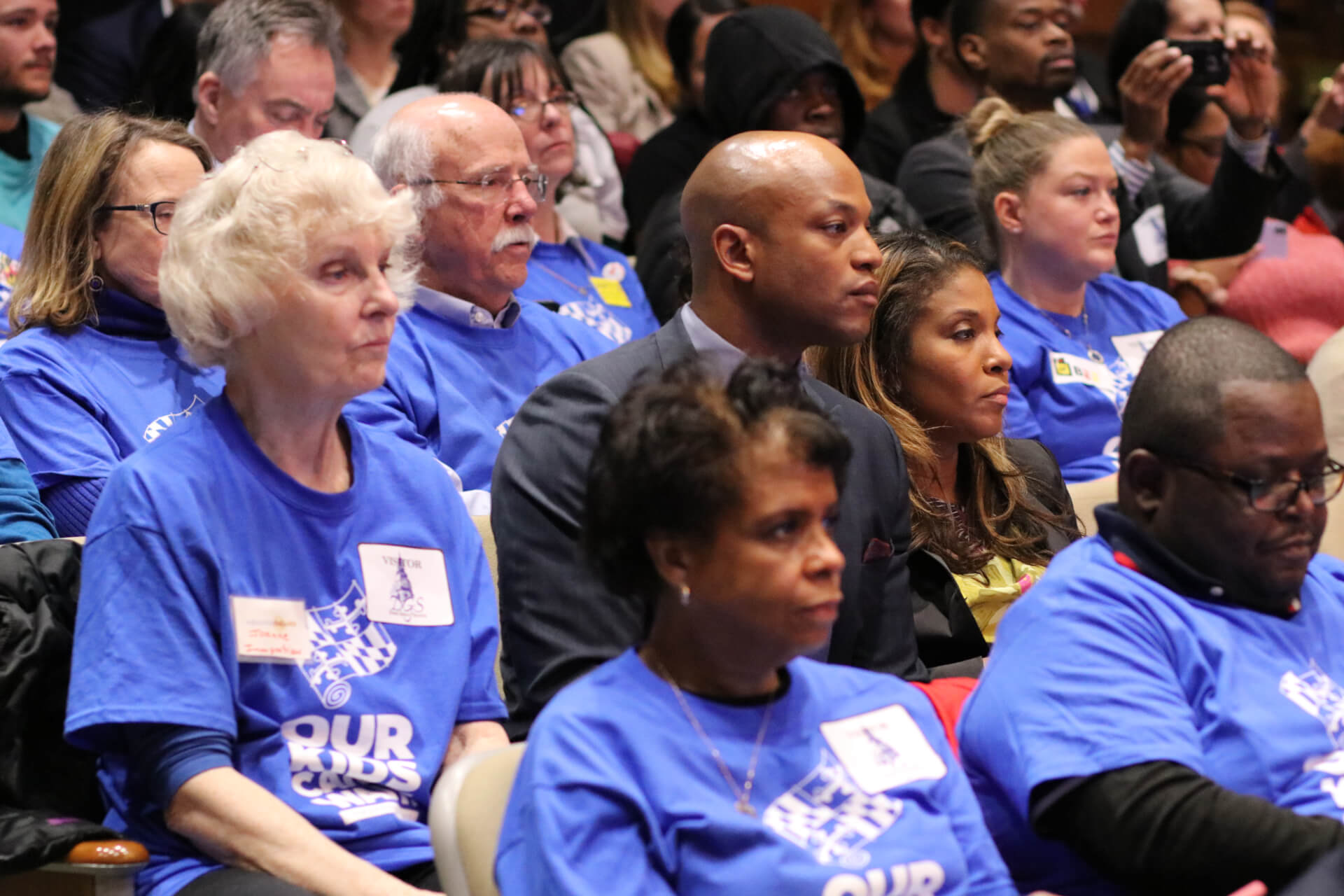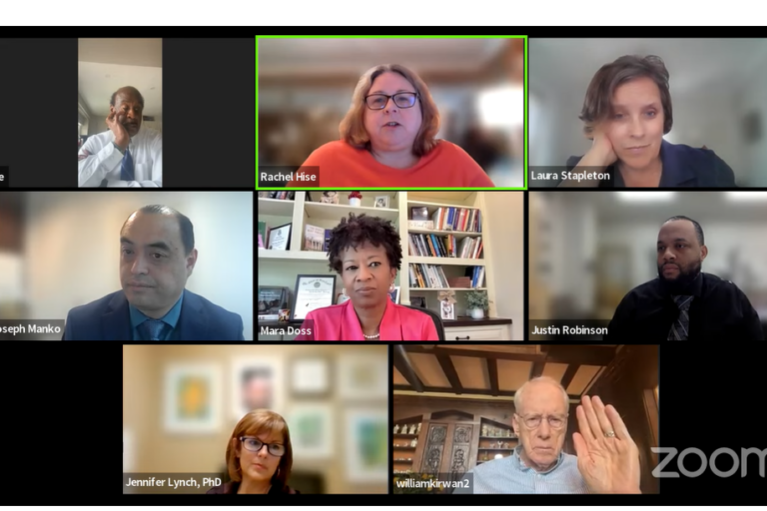Poll: Marylanders Want Better Schools But Shy Away From Tax Hikes to Improve Them

The vast majority of Maryland residents believe that teacher salaries are too low and that many school buildings are in poor condition, but there is little support for increasing taxes to address those concerns, according to a just-released survey.
The poll, by Goucher College, found that 69% of the public agrees that “public schools in Maryland don’t receive enough state funding.” In addition, 85% said they believe teachers are underpaid and 76% agreed that “many public school buildings and facilities in Maryland are run-down.”
But when interviewers asked about increasing taxes, sharp divisions emerged.
More than a third of Marylanders — 37% — would rather keep state services and taxes where they are. And even more troubling for advocates of education reform, 28% would rather have fewer state government services in order to reduce taxes.
Only 28% of those surveyed said they would be willing to pay more in taxes if it meant improved state services.
“There is a huge disconnect,” said political science professor Mileah K. Kromer, director of the Sarah T. Hughes Field Politics Center at Goucher College.
“They support the priorities of Kirwan — higher teacher salaries, more teacher training, more state funding,” she added, a reference to the educational reform commission chaired by former University System of Maryland chancellor William E. “Brit” Kirwan.
“The conflict is how we pay for it.”
The Goucher survey was in the field from Feb. 13-18, before Democratic leaders in the House of Delegates floated a proposal to cut the sales tax rate, from 6% to 5%, but broaden it to apply it to more services, a move that would bring in an additional $2.6 billion a year for Maryland schools.
Only 47% of residents polled ranked Maryland a “good” or “excellent” place to get a K-12 education.
Crime is now a top concern
The survey also found that crime — for the first time since Goucher started querying voters — is now the top concern of state residents.
Twenty percent of those surveyed identified “crime/criminal justice/policing” as the most important issue facing the state, just ahead of education (17%) and economic issues (15%).
But at the request of Maryland Matters, Kromer provided additional data that revealed a strong geographic split.
Among residents living in Baltimore City and the surrounding counties, 33% identified crime as the top issue, followed by education (15%) and economic issues (13%).
But in the populous Washington, D.C., suburbs, public sentiment was more in line with past polling.
Residents of Montgomery and Prince George’s rated education as their biggest issue, at 25%. Economic issues followed, at 15%, with crime the top concern of just 6% of residents.
Likewise, in communities outside the state’s urban corridor, economic issues remain the top concern (19%), followed by crime (11%) and education (8%).
Baltimore City recorded 348 homicides in 2019, and Gov. Lawrence J. Hogan Jr. (R) and legislative leaders have called the situation there “a crisis.”
“This is the first time it’s ever ticked up that high,” Kromer said of the statewide number on crime. “It’s on the minds of one of the most populous jurisdictions in the state.”
Sports betting, Gov. Hogan and Kirwan
Marylanders are divided on the issue of legalized sports betting.
By a margin of 47% to 43%, the public narrowly supports allowing people to gamble on sporting events online.
But nearly half opposed sports gambling at casinos, race tracks or stadiums. Goucher found that 45% of the public is OK with betting on sports at those locations, with 49% opposed.
The General Assembly is considering — and is likely to pass — sports wagering this session. Online betting firms, race track owners, casino interests and pro sports teams are lobbying lawmakers extensively.
Kromer predicts support will grow once lawmakers tie the proceeds sports gambling will generate to education.
“When you talk about just the act of betting on sports.. people are pretty divided,” she said. “But they’re going to start to talk about tying that revenue directly to education, and that changes the values proposition for people.”
Hogan remains very popular, but his numbers have slipped just a bit from previous Goucher surveys. Sixty-two percent of residents approved of the job he’s doing, with 20% voicing disapproval and 17% answering “don’t know.”
A year ago, as he flirted with a potential run for president, Hogan was at 69-14 in the Goucher poll. Despite the slip, the second-term executive’s numbers are remarkable for a Republican governor in a state where Democrats hold a vast edge in voter registration.
Although the Kirwan Commission has spent years working on recommendations to improve the state’s educational system, most residents have never heard of it.
Nearly 70% of residents surveyed said they know “nothing” about the panel, while 15% know “a little” and 9% said they know something. Only 5% said they had a strong awareness of the plan’s recommendations, which backers have said have the potential to transform the state’s schools and serve as a national model.
Sixty-one percent of those surveyed ranked Maryland a “good” or “excellent” place to raise a family, and 58% said they feel the state has strong job opportunities.
But only 39% ranked Maryland as a good place to run a business, and just 27% think of the state as a quality place to retire.
The Goucher survey, which is conducted twice a year, polled 713 adults by cellphone and landline. The poll had 3.7-point margin of error.




 Creative Commons Attribution
Creative Commons Attribution